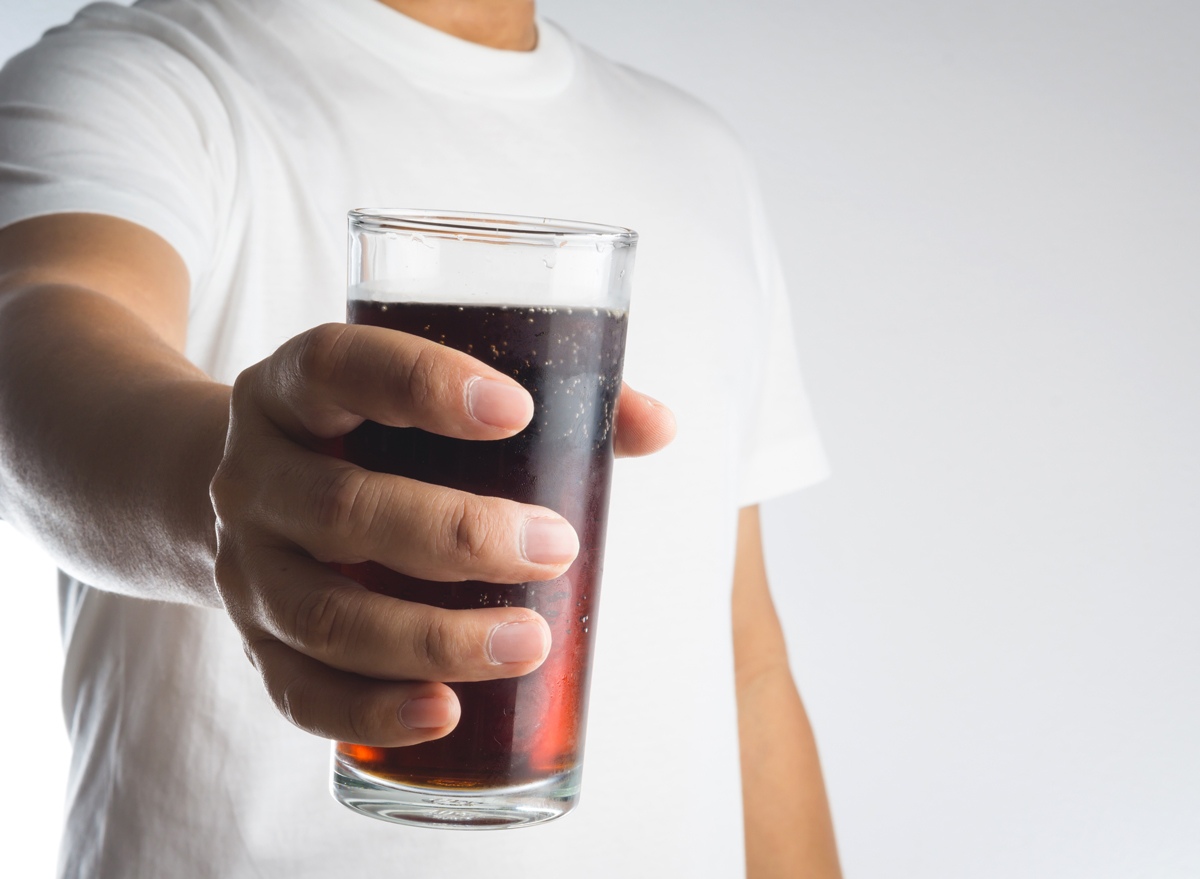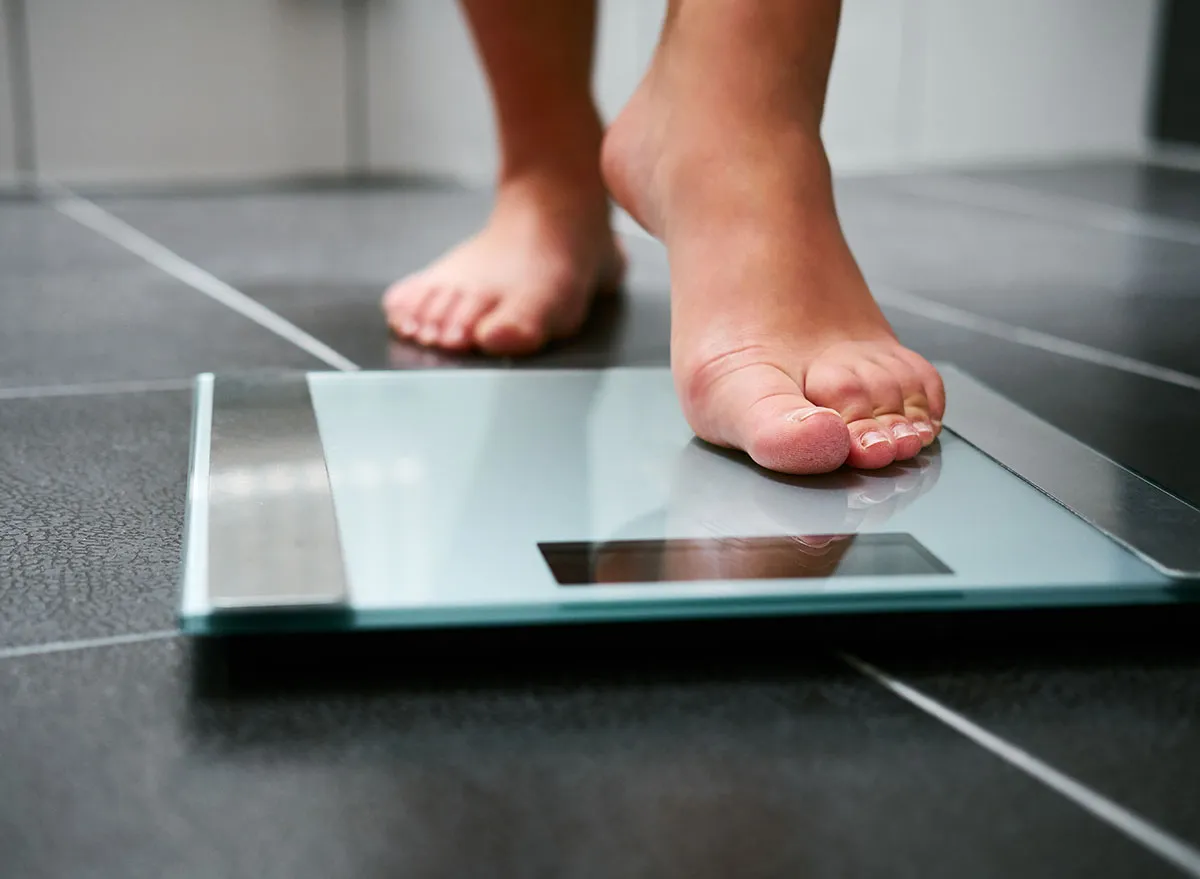Turns Out, Soda is Even Worse For You Than We Thought

Whether you grab a fizzy beverage when you need a pick-me-up during a long day at work or indulge in the occasional soft drink as dessert when you’re craving something sweet, drinking soda is simply part of many people’s daily routine. In fact, a 2017 report published by the U.S. Department of Health and Human Services found that, between 2011 and 2014, 49.3% of U.S. adults drank at least one sugar-sweetened beverage, like soda, on any given day.
While you may realize that soda’s not exactly a health food, experts say this specific sugar-sweetened beverage may have even more detrimental effects on your wellbeing than you realize. Read on to discover why you’d be wise to cut out those sugary drinks now. And if you want to clean up your eating habits, start with The 7 Healthiest Foods to Eat Right Now.
Drinking soda has been linked to the development of diabetes.

It’s not just genetics or carrying excess weight that can significantly increase your risk of diabetes.
“In 2018, a research study found that people who drink soda on a regular basis have a much greater chance of developing type 2 diabetes than those who don’t drink soda,” explains Courtney D’Angelo, MS, RD, a registered dietitian and author at Fit Healthy Momma, citing a study published in Current Developments in Nutrition.
Drinking soda may increase your risk of heart disease.

Heart disease is the number one killer in both the U.S. and around the world and drinking soda could increase your risk of developing the often-deadly condition.
“A new study published in the Journal of the American College of Cardiology found that both regular and diet soda drinkers have a higher risk of heart disease than those who do not drink sweetened beverages,” says Felicia Newell, RD, MScAHN, a medical advisor for Medical Solutions BCN. “This association is seen regardless of age, body weight, or exercise habits,” Newell adds.
Drinking soda may increase your risk of suffering a fracture.

Increasing your calcium intake might not be enough to keep your bones strong: experts say you’d be wise to cut out those daily sodas, too.
“The phosphoric acid in soda may contribute to bone loss, although this may be coupled with soda drinkers also consuming less calcium and vitamin D,” says Newell. “According to studies done in both children and adults, soda consumption has been linked to low bone mineral density as well as increased risk of fractures.”
Drinking soda may increase visceral fat on your body.

Drinking soda doesn’t just increase the amount of visible fat you carry around—it can also increase the amount of dangerous visceral fat within your body, too.
“Those who drink more soda are more likely to have excess visceral fat, a harmful type of fat that surrounds organs and can lead to metabolic abnormalities and inflammation,” says Rachel Dyckman, MS, RDN, CDN, owner and registered dietitian nutritionist at Rachel Dyckman Nutrition LLC, citing a 2010 study published in Physiology & Behavior.
Drinking soda puts you at risk for major weight gain.

Soda is little more than water, sugar, and artificial colors or flavors. With its high calories and lack of any filling nutrients, it’s no wonder the fizzy stuff has been linked to serious weight gain.
“Soda, and other sugar-sweetened beverages, are detrimental to your health and such a huge culprit of weight gain because when you eat sugar, your body can recognize that and prepare to digest it and ramp up metabolism appropriately. However, when you drink your sugar, your body isn’t as prepared and doesn’t recognize those calories and it does not help feel more full, so you still end up eating what you need/want to feel satisfied, but now you also have all these calories and sugar from the soda that get stored as fat,” Zoë Schroeder, MS, RDN, CSCS, founder of Zoë Schroeder Nutrition.
Drinking soda may increase your lifetime cancer risk.

Whether you’ve got a family history of cancer or just want to lower your risk of developing this often-devastating condition, cutting out those sugar-sweetened sodas is a good place to start.
According to a 2019 study published in The BMJ, researchers from the Sorbonne Paris Cité Epidemiology and Statistics Research Center, Avicenne Hospital Public Health Department, and The French Public Health Agency Nutritional Epidemiology Surveillance Team, among a group of 101,257 adult study subjects, the consumption of sugar-sweetened drinks was significantly associated with overall cancer risk and the risk of developing breast cancer.
For more incentive to give up the sweet stuff, check out these Dangerous Side Effects of Drinking Soda Every Day, According to Science, and for the latest healthy living news delivered to your inbox, sign up for our newsletter!
Read this next:








